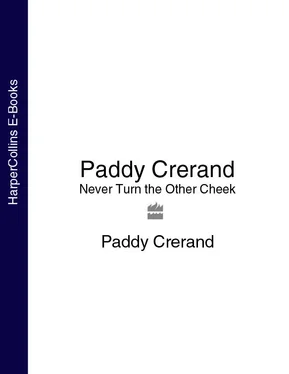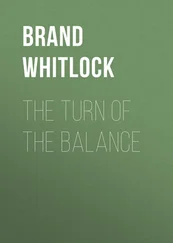Dad was 15 years older than mum and his mother did not approve of the relationship, partly because of the age difference and partly because my mother was a maid, which she considered to be a lowly profession. Mum and dad were in love though and, unable to face the hostility from my dad’s family, they eloped to Symington in Ayrshire, Scotland, where his brother John was a priest, the youngest in Scotland. My parents married at the beginning of 1937, but John couldn’t conduct the service as he died from pneumonia in late 1936. When my grandmother heard of the marriage she hung a black bow on the door of her hotel, as was the custom in Northern Ireland when someone died.
My parents returned to Northern Ireland and opened a food shop in Plumbridge, County Tyrone. Poverty was rife and it was difficult to achieve a good standard of living if you were a Catholic because you were treated like a second-class citizen, no matter how hard you worked. The Catholics suffered extreme hardships under British rule. British imperialism meant Protestant landlords got the best land which they rented to Catholic tenants. This created deep religious animosity and the Catholics rightly felt persecuted. During the Famine of 1845–49, the British offered relief to the Catholics on the condition that they attend a Protestant church. It was no surprise that Irish nationalism gained momentum.
The British had no right to be imperialistic in Ireland, although the British media usually see it differently. They claim now, for instance, that everybody in Iraq who fights against the invading British or American forces is a terrorist. But what right do the British and Americans have to be in Iraq? If you invade someone else’s country then you are wrong. I cringe at phrases like ‘the sun never set in the British Empire’. That meant nothing to the ordinary man in the street who was used as cannon fodder so that the rich could get richer. The British conquered and exploited countries all over the world for centuries. Catholics had a very difficult existence under British rule, but it was seldom easier for the working-class Protestants either. They just weren’t aware that the British were dividing and ruling. My family were deeply resentful of the British in Ireland.
My older brother John was born in Plumbridge, but the shop was not a success so he and my parents moved to Glasgow, with dad finding work digging the tunnels that were to form the Glasgow underground system. He always saw it as a temporary job and hoped to scrape enough money together to open another shop. It never happened.
I came along on 19 February 1939, my first breath taken in the family home at 260 Crown Street, in the heart of the tough Gorbals district just south of the city centre on the other side of the Clyde. I don’t remember my father, but I was curious to find out about him as I grew older. I learned that he came from a staunchly republican family who had fought in the uprisings of 1916 and 1922. Most of his friends finished up in jail for being involved in the republican movement, and when he died mum received several letters of condolence from the jail in Belfast.
After his death, my granny Anabella in Newtonstewart who had been so disapproving of the marriage asked my mum and the kids to come and live with her. She had forgiven my mother for the crime of falling in love with her son, but mum decided to stay in Glasgow. Granny in Newtonstewart then disowned her, a strange situation as she deprived herself of seeing her only grandchildren.
Back in the Gorbals, neighbours and friends held a collection to raise money for my mother as there was no social welfare. Mum went back to work as a waitress in a city centre hotel in an attempt to scrape enough together to feed and clothe the four of us. She couldn’t do it alone and my aunt Mary, who had moved to Glasgow, was a great help looking after us when mum worked. Our grandmother in Gweedore sent food parcels too. Mum’s sisters would frequently come over from Donegal to help us out. We needed the support and the lack of money was always evident. Mum regularly used to dispatch me to the front door when the rent man came and I would tell him that my mum wasn’t in so we didn’t have to pay. Someone in London owned our property so I wasn’t bothered about not paying them. It wasn’t the fault of the rent man – he was just doing his job – but he was working for an absentee landlord who made fortunes out of the poor in Glasgow. Like many in the Gorbals, we felt that there was something inherently wrong with that. We’d delay paying the rent for as long as possible, our own little protest in the hope that we would make life awkward for the landlord.
Mum rented a room for us in the house on Crown Street, where five of us slept, ate and washed, sharing a communal toilet. Mum was used to hardship but she considered the conditions intolerable and we moved to a tenement building nearby at 129 Thistle Street. That had the luxury of a kitchen, which my mother slept in on a pull-out bed, leaving the four kids in the other room. With hindsight I realize that we lived in abject poverty, but at the time we didn’t know any different and I never felt hard done by. We used to get our clothes from the church and even though we were desperately poor, we always tried to show otherwise. The church used to give us boots, big clumpy ones that would have lasted for a hundred years, but we tried not to wear them. We were never hungry and I was happy playing football all the time. Mum told me that from the age of three or four I would head a ball against the wall. Well, it was better than staring at it because there was nothing else to do.
Boredom was everybody’s enemy. We had few toys and there was no such thing as a television, so the only thing to do was play football. You weren’t allowed to play in the street, but we still did … and ran every time a policeman appeared. The police got sick of us smashing the low windows of the tenement blocks and would stop us playing. They once chased me down a back alleyway. I thought I could get out at the other end but I couldn’t and they caught me. ‘You’ll get a real kick if we catch you again’, said one of them. I was petrified. I was only five.
My first school was St Luke’s primary. I was in the school football team by the age of seven, alongside players three years older than me. I played against Frank McLintock as he was at a nearby primary school, St Bonaventures. Years later, in 1963, we would be on opposite sides in an FA Cup final.
School was just an extension of football as far as I was concerned. We played every day after school, in the light summer evenings, and Saturday mornings and Sunday too. I used to wake up at seven o’clock every morning, although school didn’t begin until nine. My pals all did the same and we had a full-scale match in the playground before going into class. The playground was the only place we could have a game without breaking the law. It’s a cliché that people of my generation started playing football with tennis balls or bundles of rags; we did see the occasional full-size football. The problem was that the lads who owned them were invariably useless and always last to be picked. So they would take their balls home. At lunch I would go home for food: soup and potatoes, or mince and potatoes. I never really saw fruit, unless I got an apple or an orange as a Christmas present. I’d eat as quickly as I could and then rush back to school to play football.
I played centre-forward for my primary school team, not because I was quick, but because I was strong and could kick the ball with both feet. I scored loads and loads of goals and played there until I was ten. Then they put me back in the middle of the park, again because I was so strong.
Football was our lives although we did occasionally play rounders or cricket, with the stumps marked in chalk against a wall in the street. The tenement building would stretch for 150 yards and there would be five or six football matches going on in front of it at a time. Nobody owned a car in the Gorbals and we only saw cars on the main roads, so they weren’t a distraction.
Читать дальше












